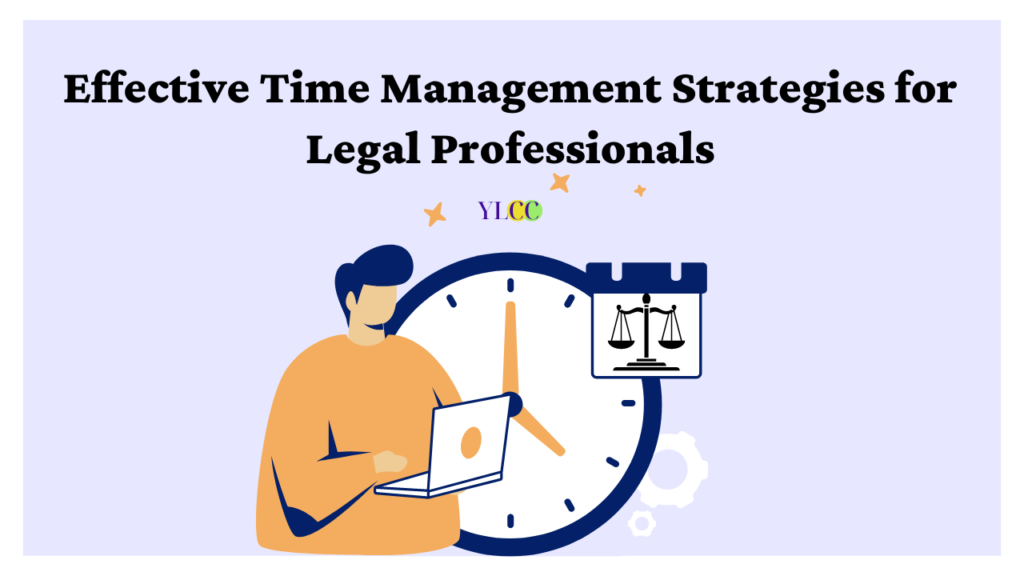
Welcome to the time-traveling law firm, where we’ve figured out how to literally bend time to our will. As legal professionals, we know that time is more valuable than Bitcoin (or billable hours, but mostly Bitcoin).
We understand that your workload is heavier than the world’s largest pumpkin, so we’ve got some time management strategies that will have you feeling like a superhero.
Whether you’re drafting briefs, attending court hearings, or fighting crime (wait, that’s a different profession), managing your time like a pro is crucial for success in the legal industry. That’s why we’ve developed some fool-proof techniques that will have you feeling like you’ve discovered the secret to immortality (spoiler alert: it’s just effective time management).
With our tips, you’ll learn how to prioritize your tasks, make the most of your time, and still have enough time to binge-watch Netflix (hey, even superheroes need a break).
So grab your time machine, hop in, and let’s go back to the future (or is it forward to the past?) to conquer your workload and become the ultimate legal time-traveler!
Set Priorities – Because Not All Tasks Are Created Equal
Let’s face it – in the legal industry, there’s always something to do. But not all tasks are created equal. Some require immediate attention, while others can wait until after lunch (or after you’ve binge-watched the latest legal drama on Netflix). That’s why prioritizing tasks is crucial for effective time management.
Prioritizing tasks allows you to focus on the most important and urgent tasks first, which can help you avoid missed deadlines, reduce stress, and increase productivity. But how do you determine what’s important and what can wait?
One helpful tool is the Eisenhower matrix. This simple four-quadrant matrix helps you categorize your tasks based on their urgency and importance.
Quadrant 1: Important and Urgent – Tasks in this quadrant require immediate attention and should be your top priority. This includes things like filing court documents, meeting deadlines, and responding to urgent client inquiries.
Quadrant 2: Important but Not Urgent – Tasks in this quadrant are important but can be scheduled for a later time. This includes things like long-term projects, professional development, and building relationships with clients.
Quadrant 3: Not Important but Urgent – Tasks in this quadrant are urgent but not necessarily important. This includes things like responding to non-essential emails, attending unnecessary meetings, and handling non-urgent administrative tasks.
Quadrant 4: Not Important and Not Urgent – Tasks in this quadrant are neither urgent nor important and can be delegated or eliminated altogether. This includes things like social media scrolling, mindless internet browsing, and unnecessary paperwork.
By using the Eisenhower matrix, you can determine what tasks require your immediate attention and what can be scheduled for later, delegated, or eliminated. This will help you prioritize your workload and maximize your productivity. So, don’t waste time on unimportant tasks – focus on what matters most and make every minute count!
Create a Schedule – Because Spontaneity Is Overrated
Ah, spontaneity – the spice of life, right? Not if you’re a legal professional. In the legal industry, spontaneity can lead to missed deadlines, forgotten appointments, and a lot of stress. That’s why creating a schedule is essential for effective time management.
Creating a schedule allows you to plan your day, week, or month in advance, so you can be proactive instead of reactive. It also helps you stay organized and focused, which can increase your productivity and reduce your stress levels. But how do you create a schedule that works for you?
First, start by identifying your priorities and the tasks that require your immediate attention. Then, set specific blocks of time for each task in your schedule, based on their urgency and importance. This will help you stay on track and avoid getting sidetracked by less important tasks.
It’s also important to schedule breaks throughout your day, to help you recharge and stay focused. Whether it’s a quick stretch break or a longer lunch break, taking time to step away from your work can actually increase your productivity in the long run. And don’t forget to be realistic – don’t schedule more tasks than you can realistically accomplish in a day. This will only lead to frustration and overwhelm.
So, embrace the power of a schedule and take control of your time. With a little planning and organization, you can maximize your productivity, reduce your stress levels, and still have time for some spontaneity (or at least a Netflix binge).
Minimize Distractions – Because Cats on the Internet Aren’t Billable
As a legal professional, it’s not uncommon to feel like you’re constantly being pulled in a million different directions. Emails, phone calls, text messages, and even the temptation of cute cat videos on the internet can all be distractions that eat away at your productivity. So, how can you stay focused and minimize these distractions?
- First, identify your biggest distractions. Are you constantly checking your phone for notifications? Do you get lost in the black hole of social media? Once you’ve identified your distractions, you can take steps to reduce or eliminate them.
- One effective strategy is to turn off notifications on your phone and computer. This can help you stay focused on the task at hand, without being constantly interrupted by incoming messages or emails.
- Another helpful tactic is to block out time for focused work. This means setting aside specific times during your day where you work on a task without any interruptions. You can use apps like Freedom or Cold Turkey to block distracting websites during these focused work periods.
- And of course, the classic method of minimizing distractions is to simply put on some noise-cancelling headphones and rock out to your favorite tunes (or ambient soundtracks, if that’s more your jam).
So, don’t let distractions turn your time into a circus. Use these strategies to minimize distractions, stay focused, and make every moment count.
Delegate Like a Boss – Because You’re Not a One-(Wo)Man Show
As a legal professional, you might have a superhero complex. You feel like you can handle everything on your own, and that’s a noble goal, but it’s not always practical.
That’s why delegating tasks can be a super effective time management strategy. When you delegate tasks, you free up your time and energy to focus on the things that really matter.
To identify tasks to delegate, start by making a list of everything on your plate. Then, identify tasks that don’t require your specific expertise or that can be done by someone else. For example, you might delegate administrative tasks like data entry, scheduling, or document filing to an assistant or paralegal.
When it comes to finding appropriate people to delegate to, look for team members who have the skills and experience necessary to complete the task successfully. If you don’t have an assistant or paralegal, consider outsourcing tasks to freelancers or virtual assistants.
Remember, delegating tasks doesn’t mean you’re shirking responsibility or passing the buck. It means you’re using your resources wisely and strategically to maximize your time and energy. So, put on your delegation cape, and start sharing the workload like a boss. Your time (and sanity) will thank you for it.
Take Care of Yourself – Because You Can’t Pour from an Empty Cup
It’s easy to get caught up in the hustle and bustle of the legal industry and forget to take care of yourself. But self-care is essential for effective time management.
When you prioritize self-care, you’re investing in your physical, mental, and emotional well-being. This, in turn, helps you stay focused, productive, and motivated. To prioritize self-care, start by taking breaks throughout the day. Step away from your desk and go for a walk, meditate, or do some stretches. You can also set boundaries around your work schedule, such as not checking emails after a certain time or taking weekends off.
In addition, make sure you’re taking care of your physical health. Get enough sleep, eat a healthy diet, and exercise regularly. When you’re physically healthy, you have more energy and mental clarity to tackle your workload.
Finally, don’t forget to take care of your mental and emotional health. This can include seeking support from a therapist or counselor, practicing mindfulness and relaxation techniques, or engaging in hobbies and activities that bring you joy.
Remember, taking care of yourself isn’t selfish or a waste of time. It’s an essential part of effective time management and helps you show up as your best self for your clients and colleagues. So, make self-care a priority, and watch your productivity and satisfaction soar.
Conclusion
Well, we’ve done it! We’ve traveled through time and space to bring you the ultimate guide to time management for legal professionals.
To recap, we’ve covered some key strategies for effective time management, including setting priorities, creating a schedule, minimizing distractions, delegating tasks, and taking care of yourself.
These strategies are essential for legal professionals who want to get ahead in their careers and provide top-notch service to their clients. By managing your time well, you’ll be able to take on more cases, conduct more thorough research, and show up to court with all your ducks in a row.
So, don’t be a procrastinator. Implement these strategies in your work routine today and watch your productivity skyrocket. And who knows, maybe you’ll even have some free time to catch up on your favorite legal drama or finally take that vacation you’ve been dreaming of!
YLCC would like to thank Pearl Narang for her contribution in this article.






